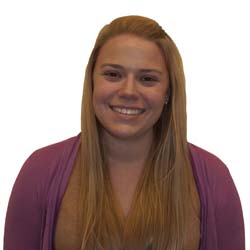I am writing this with tears. I am sick, distraught and disappointed to see how Marquette University is treating its faculty and staff this year.
Last week, the university decided it would not renew a “single digit percentage” of non-tenure track faculty contracts, which could be anywhere from one to 9% of faculty. According to the Office of Institutional Research and Analysis, there were 299 full time non-tenure track faculty as of November 2020. This could mean that three to 27 faculty members could not have their contracts renewed.
In an Academic Senate meeting March 22, Provost Kimo Ah Yun declined to release the exact number of positions the university decided not to renew.
This is not the first action the university took to eliminate faculty and staff positions at Marquette.
Four days before the beginning of the spring 2021 semester, the university laid off 39 staff members. University President Michael Lovell said this decision was made to offset financial challenges.
Considering that the university has a nearly $700 million endowment and was expected to receive $9.7 million in federal relief from the Coronavirus Response and Relief Supplemental Appropriations Act this semester, Marquette could have made efforts to maintain the positions and keep the 39 staff members employed.
While I do not know what challenges administrative leaders are mulling over behind closed doors, from my experience as a Marquette student, I know that not a single faculty or staff member is dispensable.
From classroom instruction, advising, leading alternative winter and spring break trips and supervising student organizations, I have seen firsthand how integral faculty and staff are to making Marquette “Marquette.”
There is a saying that has long persisted in our society: “Those who can, do; those who can’t do, teach.”
Despite this commonly held belief, I know this is furthest from the truth.
Not everyone can teach.
I have had amazing teachers who seem to knead knowledge straight into my brain with their guiding fingers as well as teachers who have difficulty explaining course content and I end up feeling like my brain hit a wall. Being able to understand information and explain in a way that makes sense to students — often in differentiated ways because students learn differently — and also deeply resonates with them is a skill that must be learned, just like becoming a doctor or a lawyer.
The difference is people think because you’ve gone to school, you can be a teacher. But they wouldn’t say the same thing for being a doctor or a lawyer — just because you go for a routine check-up or go to a courthouse doesn’t mean you can step into the profession.
Being a teacher is a learned skill, and a difficult one at that. I saw this growing up because my mom was a teacher.
My mom has been in the education field for 17 years. She has taught applied communications, dual languages, Spanish at the sixth, seventh and eighth grade levels, all core subjects for sixth grade, as well as math and science at the fifth grade level. She is now an instructional coach in a K-4 building.
She is arguably one of the best teachers I know. Though there are many reasons for this, there are two that stick out to me. First, she knows how to differentiate; She knows how to share information with students of varying backgrounds and learning levels and teach in different ways to meet their different needs.
That is a skill many teachers struggle with, but once it is mastered, a teacher can create an equitable learning environment where every student can succeed.
The second reason my mom is among the best is because she knows how to inspire and believe in her students. She pushes them not only to succeed, but to believe in themselves. To truly see themselves as someone capable of mastering the information, of growing as a student and as a person. She helps them believe that they are capable of achieving their dreams, of doing anything they set their minds to.
This is what people don’t understand about teachers: Teachers shape us. They are knowledge sharers, leading us down the path to understanding and mastery. They are inspirers, lighting fires in our hearts and minds. They are mentors, giving advice about life and career goals. They are supporters, feeling the pain and hardships that their students experience in the classroom and those they bring from home.
Not just anyone can teach.
Understanding the incomparable role my teachers, professors and instructors have had in my life makes me sickened to see the university does not view them the same way.
I am not the only student who feels this way. Marquette students started a Students4MUFaculty Instagram page to stand in solidarity with faculty and staff. Students also showed their support and protest against recent layoffs through leading a sit-in in Zilber Hall Oct. 21 and a protest outside Zilber Nov. 18. Brooke McArdle, a senior in the College of Arts & Sciences, was also charged with two student conduct violations after organizing the Oct. 21 sit-in. The university eventually exonerated the charges.
Marquette faculty and staff are also speaking up against these layoffs through different demonstrations outside Zilber Hall, such as holding multiple protests to reinstate the 39 eliminated positions.
To all the educators out there, thank you. I see you, and I acknowledge your hard work and passion.
I would not be the person I am today without crossing the paths with the teachers I’ve had throughout my life. I am 20 years old, which may not seem old to some of you reading, but I have spent 15 years of my life in school. That’s a lot of experience with interacting with teachers. To the teachers I had before Marquette, thank you.
To my AP Environmental Science teacher, Mr. Mieszala, thank you for sparking a passion and devotion to our planet in me.
To my high school cross country coach, coach Heimstead, thank you for seeing me not just as an athlete, but as a leader.
To my P.E. teacher and middle school cross country coach, Mr. Hollmaier, thank you for helping me see my potential and the importance of being a well-rounded human being.
To my sixth grade Math teacher, Ms. McCauley, thank you for believing in me and pushing me to believe in myself that I could.
To my mom, thank you for your unwavering faith in me as a student on my own journey and as a person growing and changing. For supporting me through the tears and the successes of my educational career. I would not be here without you.
I’m sure those reading this can do the same, and can recall teachers who have made transformative impacts on your character and life.
It just takes one teacher to believe in you, to see you as someone capable of overcoming challenges and obstacles even when you feel you’re stuck in a ditch.
To the Marquette faculty and staff who have impacted me thus far:
Dr. Mark Berlin
Dr. Jill Birren
Dr. Noelle Brigden
Dr. Louise Cainkar
Dr. Alexandra Crampton
Dr. Kimberly Ann Harris
Dr. Jennifer Henery
Dr. Karen Hoffman
Dr. Krassimira Hristova
Dr. Kimberly Jones
Christine Little
Dr. Dawne Moon
Ann Mulgrew
Dr. Sameena Mulla
Dr. Gerald Prout
Dr. Jessica Rich
Dr. Stefan Schnitzer
Dr. Rosemary Stuart
Dr. Amber Wichowsky
Mark Zoromski
Thank you. You have impacted me in my values, character and life, in more ways than you can know. Thank you for not only teaching me, but for sharing your knowledge. From instilling journalistic ethics to broadening my awareness on environmental justice issues like water contamination in Wisconsin to transforming how I understand urban spaces like Milwaukee – you have changed me.
If every student wrote out a list of faculty members who have impacted them — inside and outside of the classroom — we would find that not a single person is dispensable.
Faculty members are not dispensable.
The faculty and staff members I have had the opportunity to work with during my three years at Marquette have changed my life. Without them, I would not be the person I am today with many of my values and goals; Without them, I would not be able to strive to “be the difference.”
I believe university leaders are missing this.
“Being the Difference” isn’t just about an outward presence in the world and our surrounding community. It has to be about supporting those within our own community as well.
University leaders must be better. They cannot continue to say they care about faculty and staff, or the education and experience of Marquette students without exhausting all efforts to support and prioritize faculty and staff. Appreciation must go beyond words. It must turn into actions.
This story was written by Alexandra Garner. She can be reached at alexandra.garner@marquette.edu




